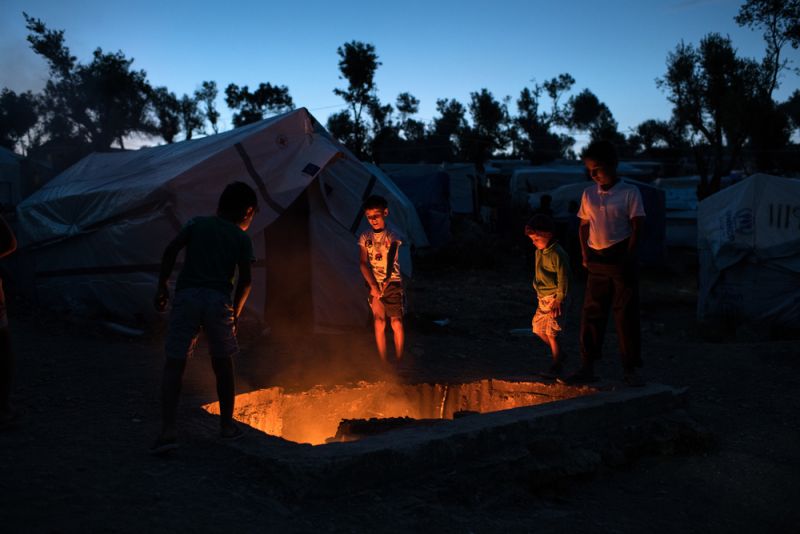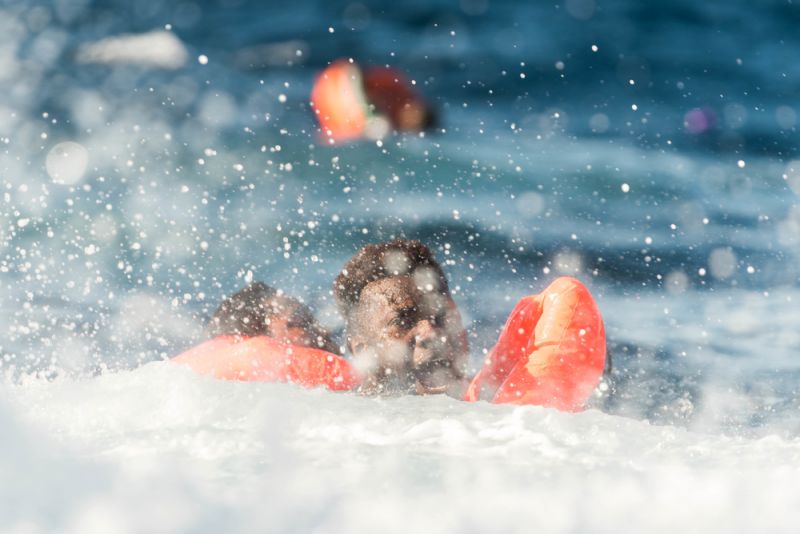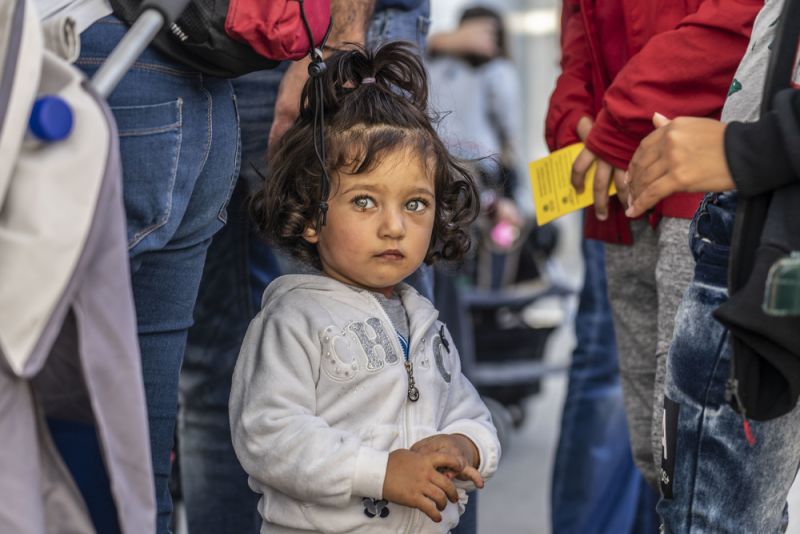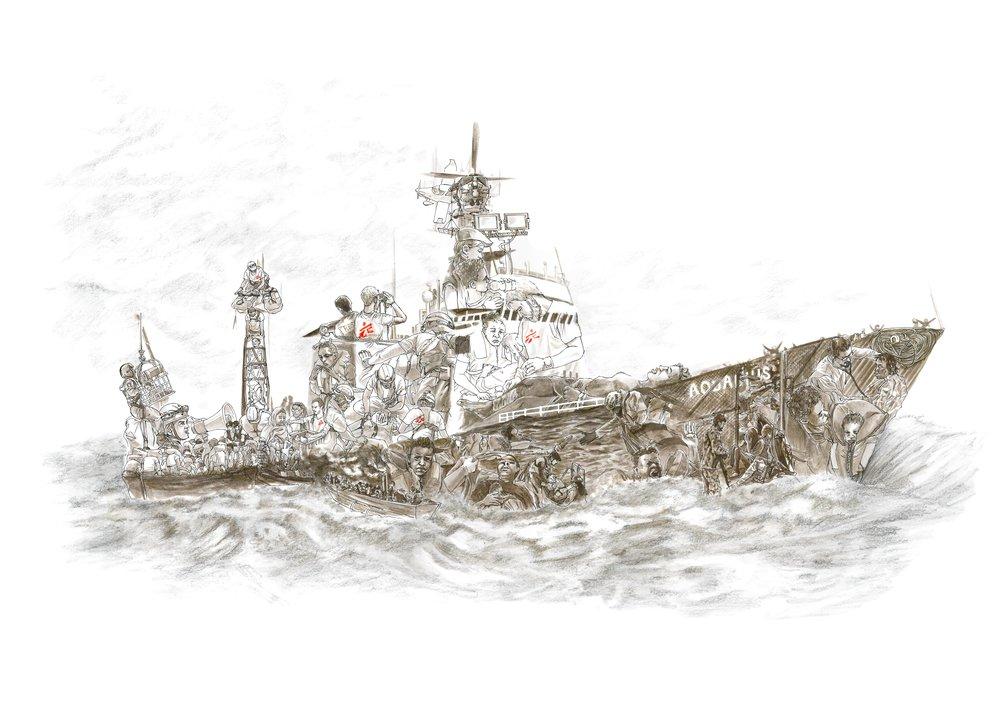While repressive actions and deadly migration policies surge internationally, thousands of people across the world are taking a stand for humane migration policies. In doing so they've demonstrated solidarity with those most vulnerable. Will this happen in South Africa too? ask Dr Joanne Liu and Liesbeth Schockaert.
Across the world, tens of millions of people are on the move and they will not just disappear. From the borders of South Africa, Malawi, Brazil and Mexico, to the shores of Malaysia, Indonesia and Europe. From Libya, to Nauru, to the Red Sea: medical teams from Doctors Without Borders (MSF) come face to face with the brutality of current migration and asylum policies.
We must face reality: inhumane policies designed to deter migration do not stop people on the move. These policies criminalise and throw vulnerable people into the hands of those who ruthlessly exploit them, whether they are criminal gangs and/or corrupt officials.
Whether these policies are simply ill-informed or are the manifestation of deliberate collusion with corruption and criminality, the result is the same: they fail to stop migration – and they kill people and deepen the suffering of millions.

The international crisis in responding to migration is not an issue countries can deal with in isolation. It must be tackled collectively, and – crucially – humanely. That is what was hoped for with the historic Global Compact on Migration signed by 164 nations, including South Africa, in Marrakech this week. This global non-binding UN agreement on a common approach to international migration in all its dimensions comes at a particularly dark hour.
Early in December MSF was forced to stop search and rescue operations in the Mediterranean Sea. A concerted, sinister campaign of legal challenges and administrative obstacles by European governments means the ship we were working aboard – the Aquarius – is no longer authorised to leave port, let alone rescue people at risk of drowning in the Mediterranean.
With the sabotage of the Aquarius, gone is the most basic humanitarian and legal commitment: saving lives at sea. Since starting of its work in February 2016, the Aquarius helped nearly 30 000 people in international waters between Libya, Italy and Malta. After we were forced to stop operating, there is no independent search and rescue craft in the Mediterranean Sea. In the first week of December, 15 people stranded in a boat off the Libyan coast died of thirst and starvation. How many may be similarly dying or drowning, without anyone even being aware?
The Global Compact on Migration has been placed at the centre of a heated political debate, which has overlooked the human lives at its core. Saving lives is non-negotiable. Saving lives is what MSF does, what we will continue to fight for, and what we urged governments and citizens to defend at the Marrakech summit.

Whether states choose to endorse this compact or not, they are bound by national, regional, and international law. This is equally true for South Africa and any other state. This compact is based on existing responsibilities, that prohibit treating people like commodities, wherever they are. Regardless of why people left their place of origin, they need protection from violence and exploitation.
MSF colleagues remain shocked by the scale of the violence and suffering inflicted upon people: those trapped in legal limbo by state restrictions and institutional violence; those trapped in arbitrary detention; those abused by traffickers.
In 2017 MSF medical staff witnessed harrowing scenes in detention centres in Libya. Desperate people, packed into filthy rooms, trapped and robbed of any hope. Men and women spoke of extreme violence and exploitation endured during their journeys. Women spoke of being raped and then forced to call their families to beg for money. Unaccompanied minors and pregnant women locked in basements without medical care. Tears in their eyes; begging for their freedom.
And despite prominent media coverage, victims of this appalling violence are still being detained in Libya – in official detention centres, and in clandestine jails which we cannot access.
From January to October, the Libyan coast guard returned more than 14 000 refugees and migrants trying to flee across the Mediterranean, back to Libya. That means men, women, children – survivors of torture and ruthless exploitation – returned to detention centres where basic human rights are non-existent, and abuse is rampant.

In Mexico and Central America, MSF medical staff witness people fleeing violence and threats at home, only to enter a nightmarish cycle of exploitation and abuse on the road. But even the knowledge of such risks does not deter them. Women and girls seek contraception because they simply expect to be raped during their journeys. In Mexico, 68% of the migrant population cared for by MSF report being victims of violence during their transit towards the United States. One-third of the women reported being sexually abused.
In October, MSF was given 24 hours to leave the island of Nauru, forced to abandon many people in the grip of a mental health crisis. Of the refugees and asylum seekers we cared for on Nauru, 30% had attempted suicide, and 60% had considered it. In Lesvos, Greece, 25% of the children attending our group therapy sessions have self-harmed, had suicidal thoughts or have attempted suicide.
These are the human costs of the so-called 'successful' policies to restrict migration. These are the policies that kill.
Despite this, many individuals and communities across the world are taking a stand for humane policies – and taking action to reduce the suffering. We've seen people who open their doors and welcome asylum seekers and migrants into their homes. Mayors are offering support in their towns. Will this happen in South Africa too? Will South Africa continue to provide protection to vulnerable and exploited people on the move, or will it clamp down with restrictive policies like elsewhere in the world? We cannot be blind to the violence endured by people on the move. We cannot ignore their despair. We cannot pretend we don't know what is happening.
We urge you, please do not give up. We need your support and your action is crucial.
Stand for humane migration policies in South Africa and around the world. Reject the criminalisation of migration which brings suffering and death.
- Dr Joanne Liu is international president of Doctors Without Borders (MSF) and Liesbeth Schockaert is MSF's migration coordinator for southern Africa.
Find out more about MSF's work in South-Africa
